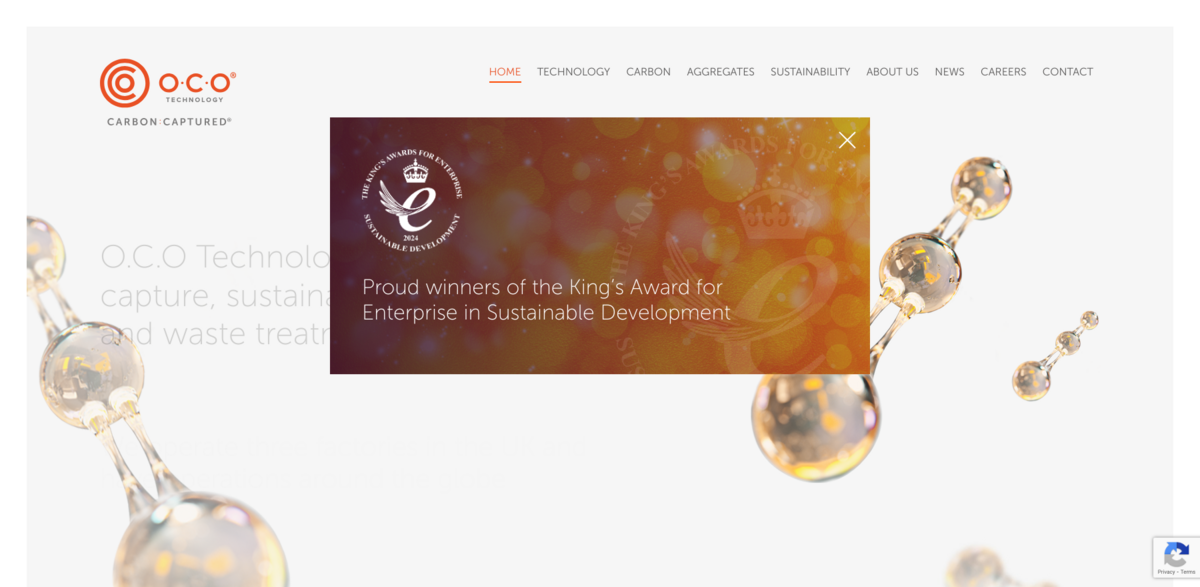What is O.C.O Technology’s Accelerated Carbonation Process?
O.C.O Technology specialises in carbon capture, sustainable construction products, and waste treatment. At the heart of their innovation lies Accelerated Carbonation Technology (ACT), a genuine Carbon Capture and Utilisation (CCU) process. This clever method uses carbon dioxide gas as a resource to treat and valorise a wide range of wastes. Many wastes naturally react with CO₂, but O.C.O’s process speeds this up dramatically—what might take months or years happens in minutes. The result? The formation of calcium carbonate, or manufactured limestone, which is stable and permanent.
Main Benefits of O.C.O Technology’s Process
The benefits of this technology are impressive and wide-ranging:
- Over 20 years of award-winning research underpinning the technology
- Permanent capture of significant volumes of carbon dioxide as stable carbonates
- Production of carbon-negative aggregate called M-LS (Manufactured LimeStone)
- Three commercial plants operating in the UK, supplying sustainable construction materials
- Valorisation of thermal wastes, turning them into valuable construction products
- Stabilisation of contaminants in waste, improving handling and reducing disposal costs
- Recognition by the United Nations Environment Programme for contributing to the European circular economy
How O.C.O Technology Turns Waste Into Construction Materials
The process doesn’t just capture carbon—it transforms waste. Thermal residues, which might otherwise be discarded, are carbonated and blended with binders and fillers. This mixture is then pelletised to create a rounded aggregate known as M-LS. This material is carbon negative, meaning it permanently captures more CO₂ than is used in its manufacture. M-LS has many applications in construction, providing a sustainable alternative to traditional aggregates. It’s a smart way to close the loop on waste and carbon emissions.
Global Reach and Industry Recognition
O.C.O Technology operates three factories in the UK but has a footprint that extends globally. Their work has been acknowledged internationally, including a mention in a United Nations Environment Report. The company’s commitment to sustainability and innovation has earned them the prestigious King’s Award for Enterprise in Sustainable Development. Partnerships with industry leaders and participation in global events like EXPO 2025 in Japan highlight their role as pioneers in sustainable technology.
Latest Developments and Collaborations
O.C.O Technology continues to push boundaries with exciting new projects and collaborations. Recent highlights include:
- Signing a landmark deal with Petronor to develop a joint venture facility in Bilbao, Spain
- Welcoming long-term partner Sicoma to their flagship Wretham plant
- Transitioning to version 4 of BES 6001, maintaining an EXCELLENT rating
- Swiss Re purchasing carbon removal credits from O.C.O
- Launching the first O.C.O blocks made in Australia
- Signing an APCr recycling agreement with Indaver UK & Ireland
Project Impact on Sustainable Development Goals (SDGs)
- SDG 9: Industry, Innovation, and Infrastructure – advancing sustainable industrial processes
- SDG 11: Sustainable Cities and Communities – providing sustainable construction materials
- SDG 12: Responsible Consumption and Production – valorising waste and reducing landfill
- SDG 13: Climate Action – permanent carbon capture and reduction of greenhouse gases
- SDG 17: Partnerships for the Goals – collaborating globally to scale sustainable solutions
Why Accelerated Carbonation Technology Matters
Accelerated Carbonation Technology is more than just a process—it’s a game-changer for carbon capture and waste treatment. By permanently locking away CO₂ in stable minerals and turning waste into valuable construction materials, O.C.O Technology is helping to build a more sustainable future. The technology stabilises contaminants, improves waste handling, and cuts disposal costs, making it a win-win for the environment and industry alike. With ongoing innovation and global partnerships, this approach is set to play a crucial role in the circular economy and climate action efforts worldwide.


















